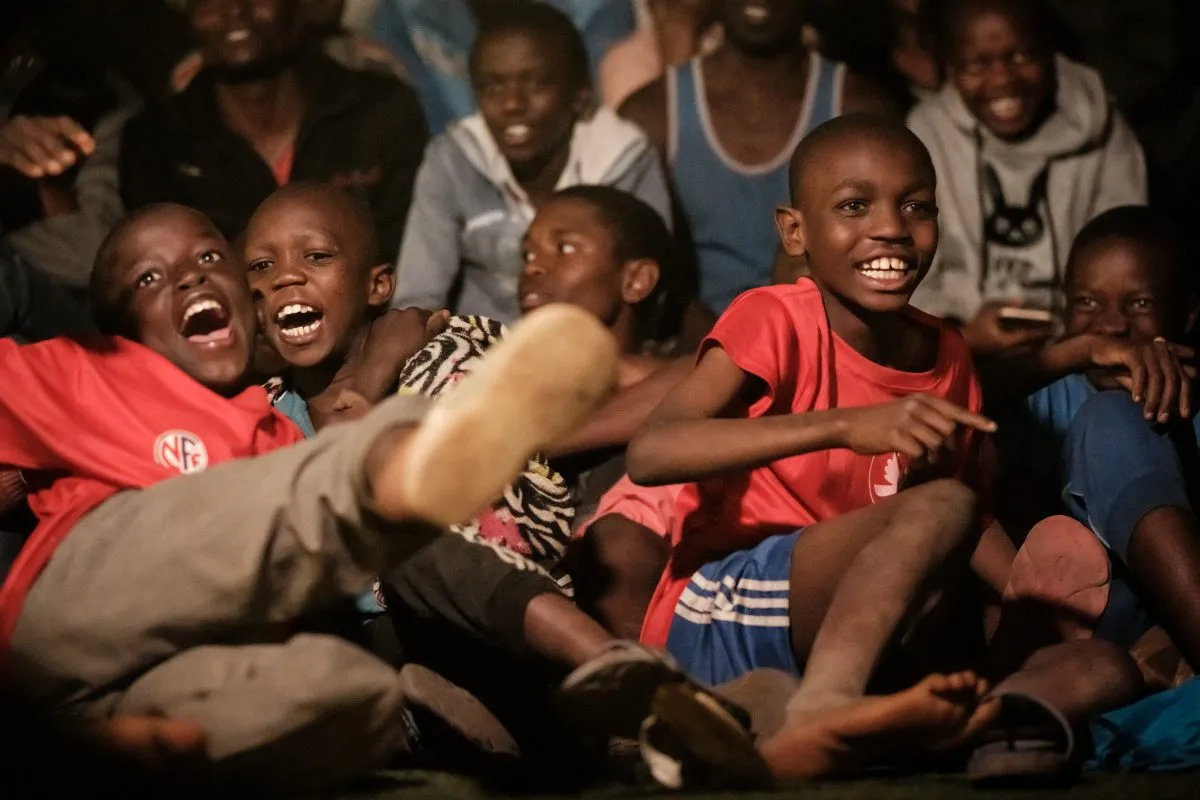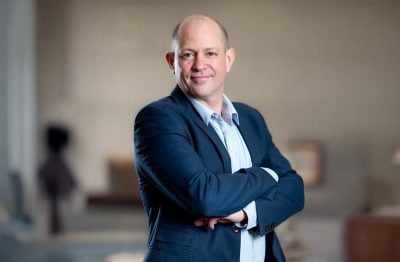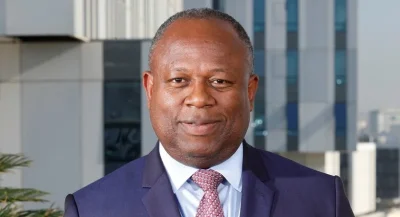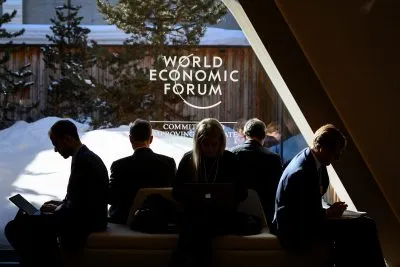The annual World Economic Forum at Davos comes when the developed world is teetering towards the far-right and protectionism is threatening global economic growth. But in this maelstrom Africa is bucking the trend and perhaps showing what can be achieved through positive energy. For the past few years the annual World Economic Forum (WEF) at Davos in Switzerland had taken place with the world gripped by a series of concentric and overlapping crises – the term polycrisis is an understated but apt description.
It was considered by those who are deep thinkers in these matters that polycrisis was something of a “black swan” event. But it now seems that polycrisis is here to stay and that it is taking more sinister, weirder shapes.
This is a very disquieting feeling. If you can identify what it is that is causing you alarm, then no matter how hideous it may be, it can be dealt with using intelligence, knowledge, strength and resolve. After all, virtually all our heroic stories are based on overcoming just such terrifying monsters.
But when you cannot tell exactly what the danger is or where it is coming from or what shape it will take or what effect it will have, you become unhinged from all your cast-iron realities. You don’t know what or who to trust anymore. Centuries old values on which we have erected massive personal and collective edifices seem to crumble into dust before our eyes. This is a very dangerous time. It’s the sort of time that leads to the type of madness we have seen in the World Wars and some revolutionary movements – the indiscriminate slaughter of millions and wholesale destruction of civilisations.
Reading the signs
History tells us that such armageddons are always preceded by tell-tale signs that warn of impending catastrophe – if only we can read them and find ways to prevent the deluge. Alas, history also tell us that we are in the habit of ignoring such harbingers until it is too late.
But perhaps, this time, we can pay heed to the various signs of danger and in the unique forum presented by the gathering in Davos, put aside our petty preoccupations and look at the whole – our wonderful planet and all those fortunate enough to live on it.
The theme of this year’s World Economic Forum is “Collaboration for the Intelligent Age”. This is a positive and hopeful aspiration in a world that seems determined to tear itself into myriad pieces.
Discussing WEF’s theme last year, which was “Restoring Trust”, I wrote: “This endeavour [of restoring trust] could not have come at a more apposite time. Rarely has the world experienced such a fragmentation, such bitterly opposed viewpoints, such adamant refusal to yield any ground and such complete lack of trust in the motives of any party not supporting one’s perception, as we see today.”
One year later, alas, the fragmentation, the closing in, the exclusion and the hostility within and outside national borders is, if anything, worse. In Europe, the cordon sanitaire erected by centre-right parties to keep out the extremists is collapsing by the day as far-right wing parties such as Austria’s Freedom Party, Germany’s AfD, Hungary’s Fidesz, Italy’s Fratelli d’Italia and others are sweeping all before them.
Donald Trump’s US is unrecognisable from Barack Obama’s beacon of hope which, despite all its faux pas, represented a measure of positive influence in the world. With the threat of protectionist policies, Trump seems determined to plunge the world into a tit-for-tat downward cycle that will slash growth and therefore incomes across the globe.
Economics aside, American power projection, which may have kept the peace in several instances, is unlikely ever to recover from the public humiliation dealt to Joe Biden by Israel’s Benjamin Netanyahu over the slaughter of the innocents in Gaza.
Indeed the indifference from Western champions of human rights over the plight of Palestinians and the scale and impunity of the killing is chilling. As Nigeria’s Udo Jude Ilo says: “We are now in a situation where the identity of the aggressor or the identity of the victim determines how the world responds, and you cannot maintain an international framework of protection if it is available à la carte.”
This appalling situation is not only a direct contravention of human rights, but also of the value system enshrined in all the world’s religions. If we are not to be shocked and mourn the death of an innocent Palestinian child, what is there left to mourn or be shocked about?
The underlying decency of human nature
In this admittedly hellish scenario, WEF’s determination to find ways of collaborating is not, as many have suggested, naïve, but a bold statement of confidence in the underlying decency of human nature. The sub-themes are: rebuilding trust; reimagining growth; investing in people; safeguarding the planet; and industries in the intelligent age.
The return to the all-important need to “rebuild trust” is welcome because, as we have seen, trust has become a very scarce commodity.
The results of trust have brought more prosperity to more people in more ways than ever before – but it could disintegrate.
WEF clearly believes that the “intelligent age” is one in which AI can deliver, even when flawed human agency is failing.
WEF president Klaus Schwab believes that converging technologies are rapidly reshaping the world, pushing us to an inflection point, “an era far beyond technology alone. This is a societal revolution, one that has the power to elevate humanity – or indeed to fracture it,” he says.
What does seem likely is that the predominance of AI is likely to produce an international generation of tech wizards who will collaborate to knit the disintegrating world even as it frays, thanks to the machinations of short-sighted and divisive political considerations.
Africa makes moves on AI
What is very interesting is that Africa, so often regarded as the very junior partner on the international deal table, is actually moving ahead very rapidly to control, tame and direct AI. The annual Most Influential Africans list published by New African magazine has a preponderance of AI experts within its science and academia section. These tech geniuses are working largely at the very edge of international discovery in the field.
Africa is also working to “reimagine growth” since the ancient dispensation has dealt it very poor cards. Given the shifting sands of the old order, Africa can buck the trend and enter into collaborations that can recast growth and deliver a fairer, more just dispensation. It already is doing that.
While many of the nations of the West are drawing in on themselves, Africa is opening up. In addition to its 55 countries, Africa is reaching out to embrace its long-severed links with the diaspora populations in the Caribbean, South America and the US.
Life-affirming energy
Still bucking the trend, Africa is also drawing its diverse components closer through its multinational development banks; the biggest and most diverse single market in the world (the African Continental Free Trade Area); an African-designed payment settlement system that bypasses international banks; a unified and sophisticated approach towards climate change and the transition to clean energy.
But perhaps its greatest contribution is the positive, life-affirming energy that Africans exude in such vast volumes.
Therefore, while the sense of impending but undefinable dread – that expressed by the poet WB Yates as “things fall apart; the centre cannot hold” – pervades the mostly Western established world, Africa is finding itself on increasingly solid ground. Perhaps Africa is the pivot point the world desperately needs in this intelligent age.
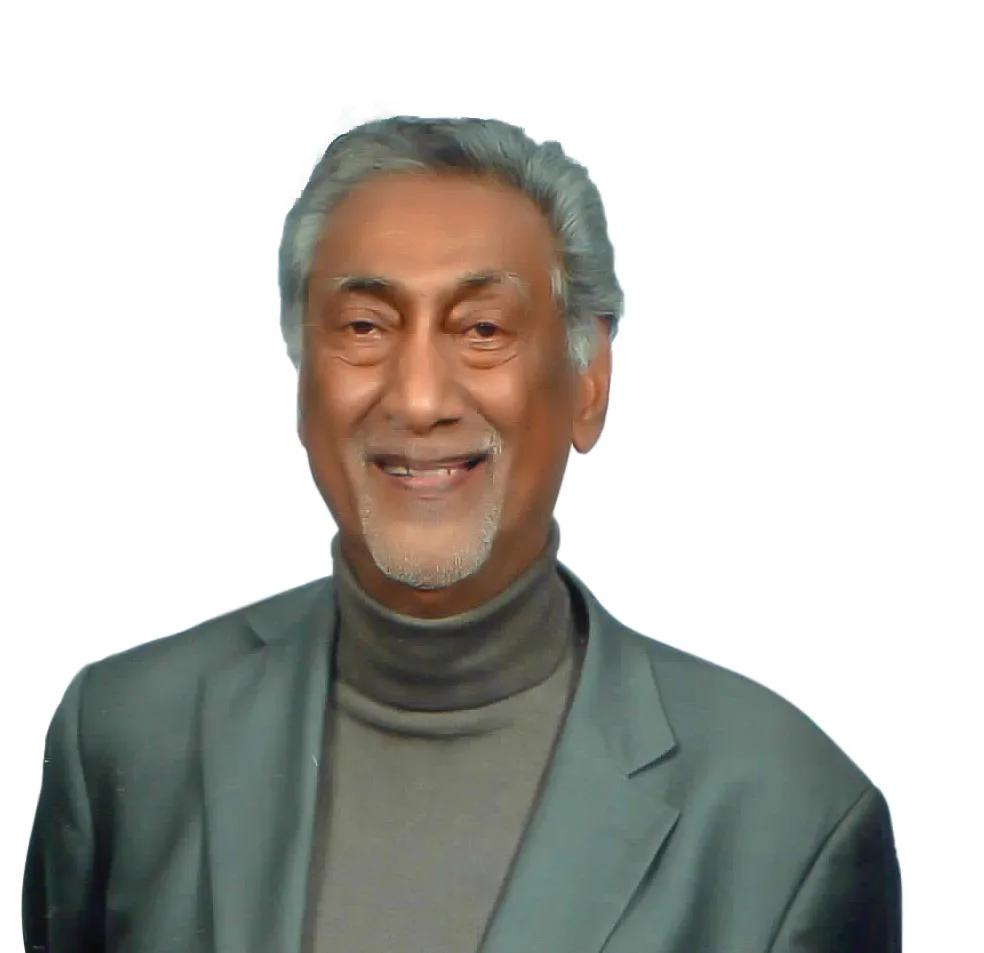
 Sign in with Google
Sign in with Google 